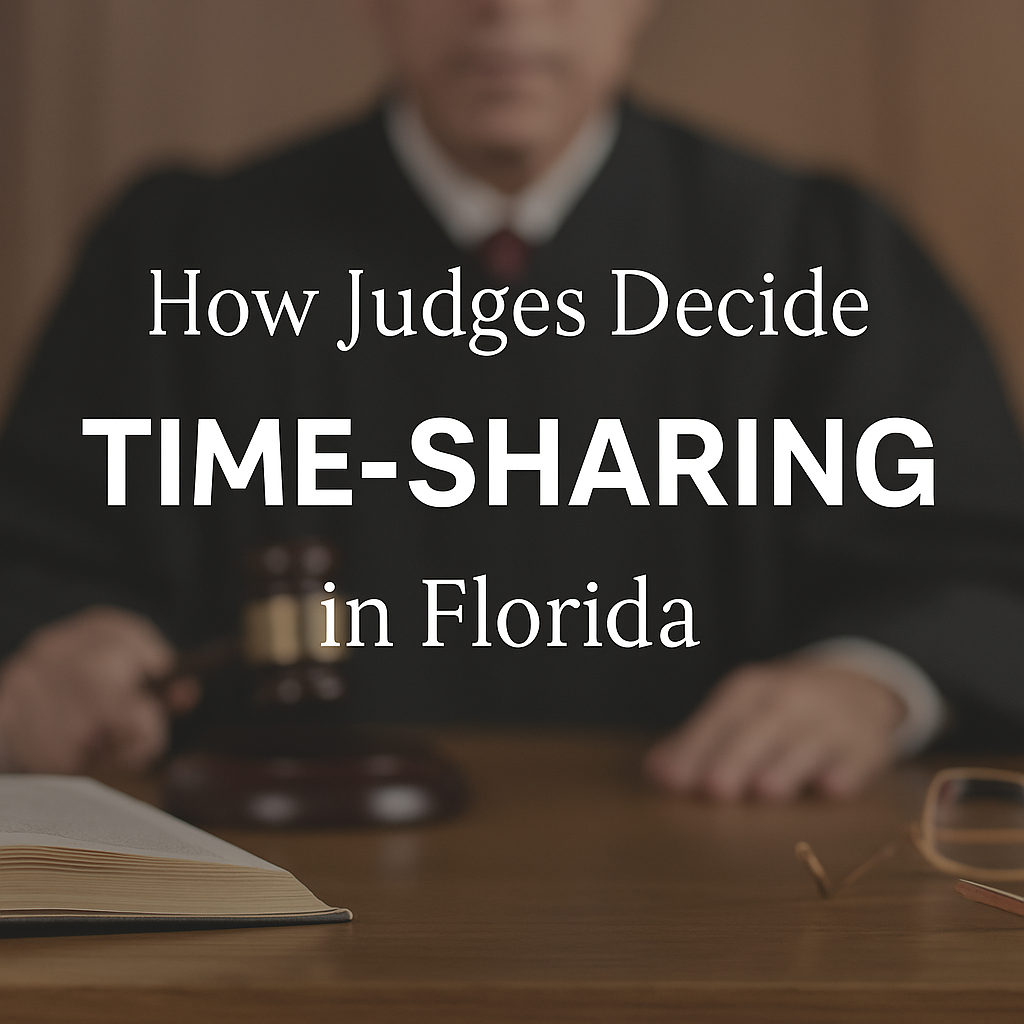
Introduction
When parents separate in Florida, one of the most pressing concerns is how the court will allocate time with the children. Florida law uses the term time-sharing instead of “custody,” and decisions are made based on the child’s best interests. But what exactly does that mean?
The Best Interests Standard
Under Florida Statute §61.13, the court’s guiding principle is always the best interests of the child. Judges look at a variety of factors to determine what arrangement will support the child’s health, safety, and emotional well-being.
Key Factors Judges Consider
- Parental Involvement – Which parent has historically been more involved in daily activities (school, medical appointments, extracurriculars).
- Ability to Co-Parent – Courts favor parents who can communicate and cooperate.
- Stability – Judges often prioritize consistency in the child’s environment, including school, neighborhood, and home life.
- Moral Fitness and Conduct – The court may consider any behavior that could affect the child.
- Child’s Preference – If the child is mature enough, their preference may carry some weight.
Common Misconceptions
- Myth: Mothers automatically get more time.
- Reality: Florida law is gender-neutral. Courts focus on the child’s best interests, not the parent’s gender.
- Myth: A parent can withhold time-sharing for missed child support.
- Reality: Support and time-sharing are separate legal issues.
Tips for Parents in Time-Sharing Cases
- Document your involvement in your child’s life.
- Show a willingness to cooperate with the other parent.
- Avoid negative remarks about the other parent.
Conclusion
Every family is unique, and every judge evaluates the facts individually. The more you can demonstrate your commitment to your child’s stability and well-being, the stronger your position will be in court.
If you are facing a time-sharing dispute in Florida, Lipinski Family Law can help guide you through the process. Contact us today to schedule a consultation.
Related topics:
Understanding temporary custody in Florida
When is a Verbal Agreement Legally Binding?
Florida Statute 61.13. (Florida Statute on Parenting Plans)


